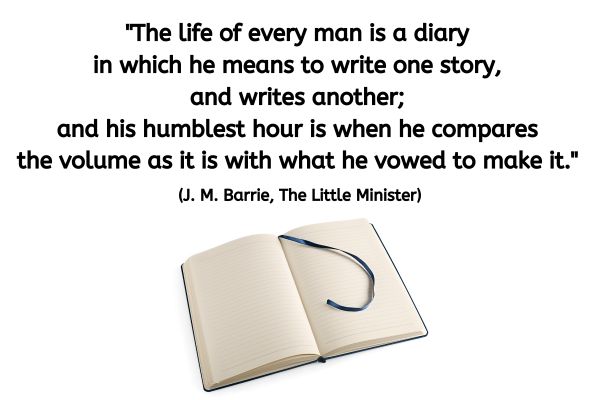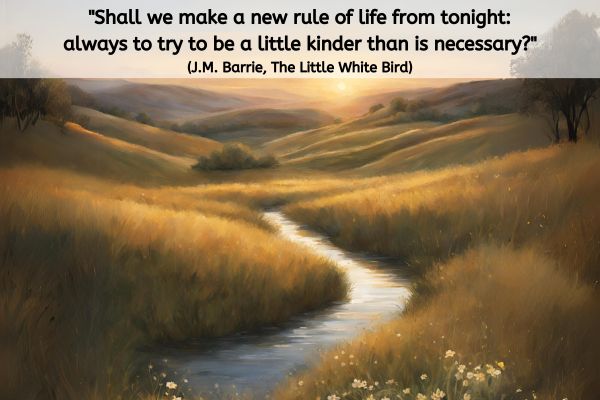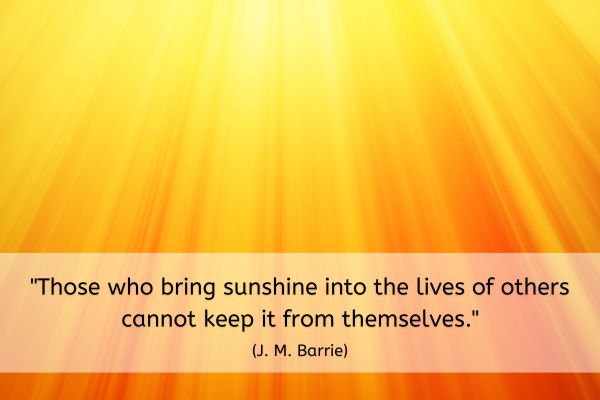When We Compare the Life We Live to the Life We Imagined: What Stories Are We Telling Ourselves?

“The life of every man is a diary in which he means to write one story, and writes another; and his humblest hour is when he compares the volume as it is with what he vowed to make it.” (J. M. Barrie, The Little Minister)
J. M. Barrie, best known as the creator of Peter Pan, had a knack for exploring the complexities of human nature and the stories we tell ourselves. His quote invites us to reflect on how we view our lives, not just as they are, but in comparison to how we imagined they would be.
Comparison and How It Can Get in Your Way
Comparison has a way of clouding our perspective, especially when it’s tied to unattainable ideals or stories we’ve constructed about who we should be. Often, those stories come with a generous helping of judgement about how much time has passed or how little progress has been made.
As coaches, we see this often—clients caught up in comparing themselves to others or to their own expectations. These expectations, while seemingly immovable, are creations of their own making. Yet, when we are caught up in this, we often forget this truth.
What happens when we compare our actual lives to the stories we vowed to write? We often fail to notice the subtle, profound ways we’ve changed. Comparison can blind us to growth, trapping us in a narrative that no longer serves us.
For clients, this means missing the richness of what is because they’re so focused on what they believe should be. One powerful realisation for clients is recognising that these stories are not set in stone. They’re drafts, shaped by perspective, and can be rewritten.
Comparison often blinds us to the richness of what is, keeping us tethered to the stories we tell ourselves about what should be. However, within these stories lies an opportunity: to view our lives not as fixed narratives but as dynamic works in progress.
I think, this is where the metaphor of life as a diary offers a powerful opportunity to play and explore perspective. Diaries, like life, are full of revisions, surprises, and moments of clarity. They remind us that our stories are never final — they are living, evolving reflections of our experiences and insights.
Life as a Diary: Unlocking Insights Through Metaphor
This is where Barrie’s metaphor of life as a diary becomes a powerful tool for exploration. Diaries, like life, are imperfect, messy, and often contradictory. Yet they are profoundly human. They capture not just what’s happened, but also how we’ve made sense of it.
At this time of year, many people reflect on the past and begin imagining the year ahead. The diary metaphor offers an invitation to approach these reflections with curiosity and creativity.
As a coach, you might invite a client to explore:
- What does your “diary” look like right now? If you were to flip through its pages, what would stand out?
- Are you stuck trying to rewrite chapters instead of writing new ones? How does that serve you?
- If your own wisdom was to take over writing whilst your intellect took some time of – what would be written next?
- What if your diary is already written, and you’re simply experiencing each page as it unfolds? How would that be different?
By engaging with this metaphor, clients can shift their perspective from judgement to curiosity, opening up space for wonder and for new insights. It’s not about erasing what’s been written, but about seeing it for what it is – our telling of the story.
Closing Reflection
As coaches, we, too, write and rewrite the stories of our practice, comparing where we are now to where we imagined we’d be. But what if growth isn’t about achieving the perfect narrative, but instead about embracing the beauty of the unexpected edits along the way?
How might you, as a coach, use the diary metaphor to help your clients honour their unique stories? And in doing so, how might you also learn to embrace your own?
About Jen Waller

Jen Waller is a transformative coach dedicated to empowering individuals to get out of their own way and make a meaningful impact in the world. With an impactful, nurturing coaching style, Jen supports clients in unlocking their potential and achieving their goals. As an experienced coach and trainer, she guides clients from self-doubt to success.
Discover how Jen can support you to get out of your own way here.




